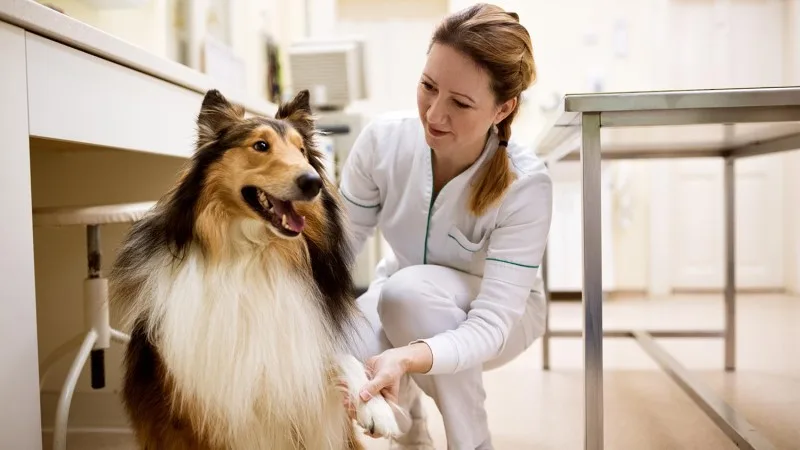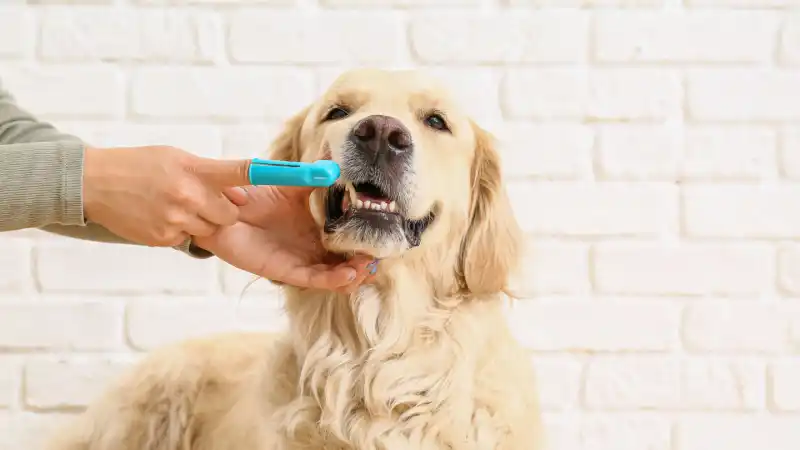Can My Dog Donate Blood?
You donate blood, but did you know that your dog could be a blood donor, too! Canine blood banks require donations from dog volunteers in order to save lives.

According to the American Red Cross, approximately 6.8 million people in the U.S. donate blood each year. Did you know that your dog could be a canine blood donor, too?
Canine Blood Banks
The increase in veterinary advancements has increased the necessity for blood transfusions. Emergency medicine, critical care, oncology and various surgeries all require that a vet clinic has blood available. In the past, vets had a difficult time acquiring blood when a patient required it. With regional blood bank programs now available, veterinarians are able to perform the required surgeries and procedures to treat patients.
Dog Blood Types
While dogs do have different blood types, they are often referred to as groups. There are six common groups; however, dogs have over a dozen different groups under which they can fall . About 40 percent of dogs fall in the universal donor group and are considered ideal donors - their blood can be used for any dog needing a transfusion!
Canine Blood Donor Requirements
Similar to human blood banks, canine blood banks depend on donations from volunteers who meet a few requirements:
Weight
While blood banks don’t care about a dog’s breed, the pup’s weight will determine if he or she is placed in the “Full Pint” or “Half Pint” donation program. Weight limits vary depending on the blood bank. The average donor’s weight falls between 35 and 50 pounds as long as the dog is not overweight for his build.
Behavior
All prospective donors have to be friendly and obedient, comfortable around strangers and calm during handing and physical examination.
Health
Potential donors are required to be up to date on required vaccinations including distemper, parvovirus, parainfluenza, hepatitis and rabies. They are also not allowed to be on any medications other than flea, tick and heartworm preventatives.
Age
While each blood bank has their own set of rules regarding age, the average age of a donor ranges from one to nine years old.

Every Dog and Cat Deserves the Pet Insurance of Champions
Get prize-winning care for your pets.
Dog Blood Testing
After a potential donor meets the basic requirements, the dog will be given a physical examination, blood chemistry profile and complete blood count. A complete blood count (CBC) identifies white and red blood cells as well as platelets to analyze the cells for health and functionality. The CBC measures the quantity and quality of the cells to ensure a dog is not anemic, dealing with infection or otherwise unhealthy.
A blood chemistry profile allows veterinarians to analyze chemicals and enzymes in the blood to understand the status of organ functions. This test also shows a dog’s blood sugar level and the quantities of essential electrolytes.
What To Expect During Your Dog’s Blood Donation
If your dog is approved to act as a donor, the process is fairly simple and typically lasts between 15 and 30 minutes. Your dog will be asked to lay on his side, the area around the jugular vein will be sterilized and then the blood will be drawn. Once collected, dogs are given plenty of love and treats to reward them for their patience!
After your dog has donated blood, he should be fine to resume his day as usual. You may want to take it easy on exercise for the rest of the day after a donation and there is the possibility of slight swelling at the site where the blood was taken.
You should also expect the good feelings that come along with knowing you and your dog have helped to save another pup’s life!
Becoming a Donor
Interested in finding the nearest canine blood bank? Many veterinary schools have established blood donor programs. You can also search online or ask your veterinarian for their recommendation. Most blood banks offer an easy, free screening to determine if your dog fits the criteria to donate!

Every Dog and Cat Deserves the Pet Insurance of Champions
Get prize-winning care for your pets.

Mary comes to AKC Pet Insurance with an extensive background in animal care. As a lifelong animal lover, she has a passion for promoting pet health and wellness. Mary lives in Kentucky with her orange kitty, "Cat" and her dog, " Wubbi".
READ MORE ARTICLES

